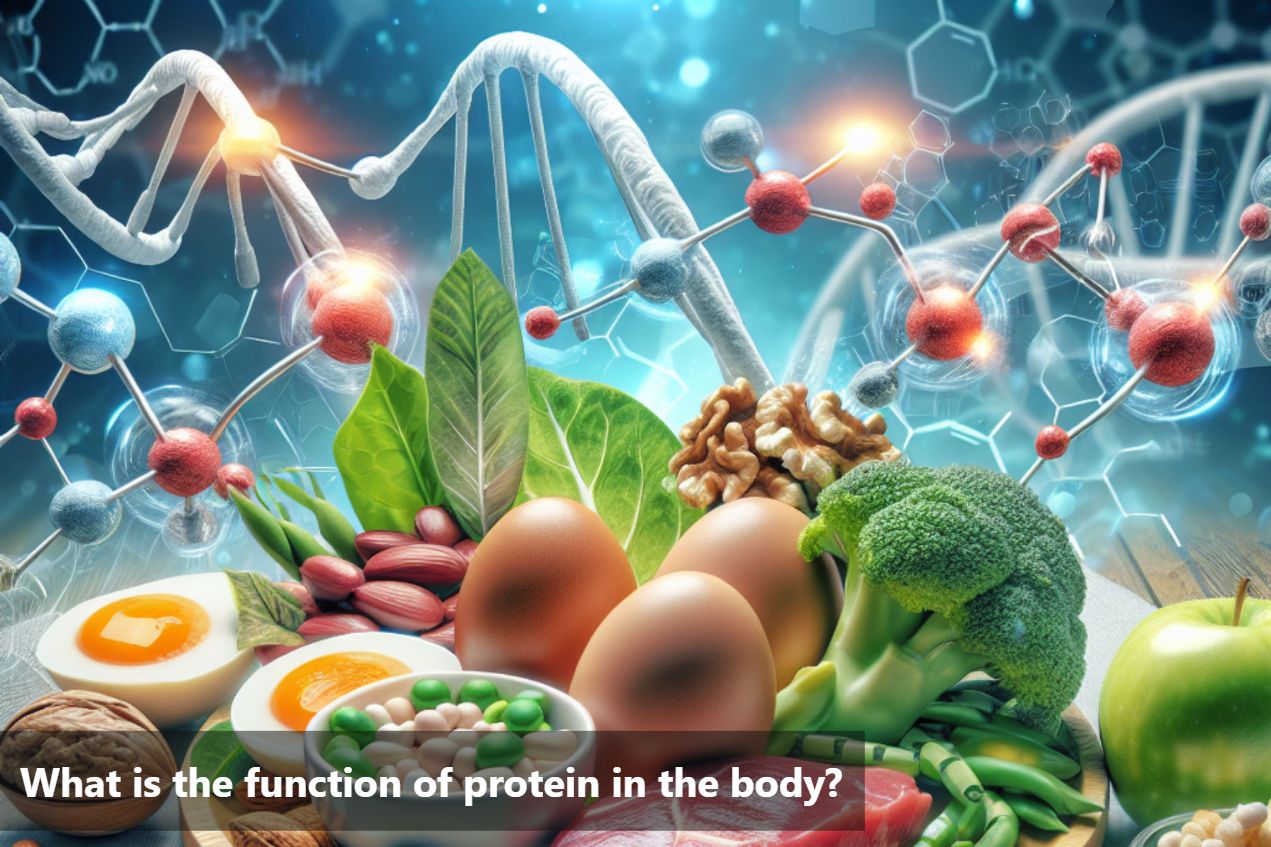
What is the function of protein in the body?
Proteins are essential molecules that play a crucial role in the functioning of the human body. They are made up of amino acids and are involved in various physiological processes necessary for life. From building and repairing tissues to serving as enzymes for biochemical reactions, proteins are the multitasking powerhouses of the body.
Proteins have diverse functions in the body, contributing to the structure, regulation, and enzymatic activities that keep our systems running smoothly. They are not just important for muscles and tissues; they also participate in immune response, cell signaling, and gene expression.
Understanding the function of proteins in the body is fundamental to grasp how vital they are for our overall health and well-being. By incorporating sufficient protein into our diets, we ensure that our bodies have the building blocks necessary for growth, repair, and maintenance of organs and tissues.

Structural Function of Proteins
Proteins play a crucial role in the structure of cells, tissues, and organs in the body. They act as the building blocks that provide strength, support, and shape to these structures. For instance, collagen, a protein found in connective tissues, gives skin its elasticity and firmness, contributing to a youthful appearance.
In muscles, proteins like actin and myosin are responsible for contraction and movement, enabling us to perform various physical activities. Without these proteins, our muscles wouldn't be able to function effectively.
Moreover, proteins found in cell membranes help maintain the cell's shape and structure, allowing for communication and transport of substances in and out of the cell. These proteins also play a role in cell recognition and adhesion processes.
In bones, proteins like osteocalcin and collagen are essential for maintaining bone density and strength. They provide the framework that supports the body and protects vital organs.
Overall, the structural function of proteins in the body is indispensable. They not only maintain the integrity of cells, tissues, and organs but also ensure proper functioning of the various body structures, highlighting the critical role they play in sustaining overall health and well-being.
Enzymatic Function of Proteins
Enzymes are specialized proteins that act as catalysts, speeding up chemical reactions without being consumed in the process. One essential example of an enzyme is amylase, which helps break down carbohydrates into simpler sugars like glucose. This process aids in energy production and absorption.
Moreover, proteases are enzymes responsible for digesting proteins into amino acids, essential for muscle building and repair.
Lipases, another type of enzyme, assist in the breakdown of fats into fatty acids and glycerol, crucial for energy storage and cell structure. Enzymes also play a vital role in metabolic pathways, such as the citric acid cycle, where multiple enzymes work together to convert nutrients into energy.
Understanding the enzymatic function of proteins provides insights into how our body efficiently processes nutrients, maintains energy levels, and supports essential physiological functions. By consuming a balanced diet rich in proteins, individuals can ensure the proper functioning of enzymatic processes, promoting overall health and well-being.
Regulatory Function of Proteins
One of their essential functions is to control gene expression, which determines the synthesis of specific proteins in cells. This regulatory mechanism ensures the proper functioning and development of the body's different tissues and organs.
Moreover, proteins are indispensable in cell signaling pathways, where they act as messengers to transmit signals for various cellular activities. By interacting with receptors on the cell surface, proteins enable coordination and communication between different cells, allowing for appropriate responses to internal and external stimuli.
The immune response, vital for defending the body against pathogens and foreign invaders, heavily relies on proteins. Antibodies, a type of protein, recognize and neutralize harmful substances, contributing to the body's defense system and overall well-being.
Maintaining homeostasis, the body's internal equilibrium, is another critical function of protein regulators. They help regulate body temperature, pH levels, and nutrient balance to ensure optimal conditions for cellular processes and overall health.

The Essential Role of Protein in Body Processes
Proteins are not only essential for the structural integrity of cells, tissues, and organs, but they also serve as enzymes that catalyze biochemical reactions, ensuring efficient metabolic processes. Moreover, proteins act as regulators, orchestrating key processes like gene expression, cell signaling, and immune responses, thus maintaining the body's equilibrium.
Understanding the diverse functions of proteins highlights the critical need to include an adequate amount of protein in our daily diet. Proteins are the building blocks of life, contributing to muscle development, tissue repair, and overall growth. By consuming sufficient protein, individuals can support their bodily functions, promote healthy metabolism, and enhance their immune system.
Therefore, it is imperative to prioritize protein consumption to sustain optimal health and well-being. Whether through animal or plant-based sources, incorporating protein-rich foods enhances our body's ability to function efficiently and effectively.
This Blog post is an initiative by Lo! Foods, to provide accurate and Nutritionist / Doctor approved information related to Health. Lo! Foods is India's leading brand for Everyday Functional Foods. Foods designed for specific Health conditions or Needs. Lo! Foods also runs India's largest range of Low Carb Healthy Cloud Kitchens, under the brand names of Lo!, ProteinChef, ATH (All Things Healthy) and DiabeSmart.















Leave a comment
Your email address will not be published.